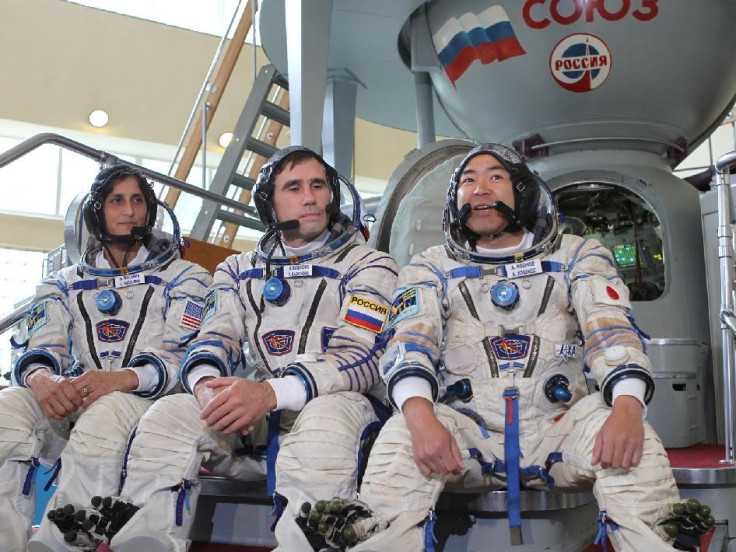Sunita Williams Heading Back To Space in July

Indian American astronaut Sunita Williams, 46, is heading back to space on another scientific expedition. The first female astronaut to hold the longest space flight record is all set to return to the international space station.
She will be aboard the Soyuz TMA-05M spacecraft along with two crew members, Yuri Malenchenko and Akihiko Hoshide, on 14 July 2012. The spacecraft is scheduled to take off from the Baikonur Cosmodrome in Kazakhstan.
"I'm just looking forward to seeing the full capability of the space station. It's an experiment, not only the things that we're doing inside but also all the engineering that has gone into allowing us to dock new vehicles, do space walks, Russian and US. So, it's a pretty complicated vehicle now and I'm looking forward to being part of it," the Times of India quoted Sunita Williams as saying.
In 2006, Sunita Williams worked and lived in the International Space Station for six months.
Sunita will work as a flight engineer on the station's Expedition 32 crew and become commander of Expedition 33 on reaching the space station, according to a DNA report.
Once she and her crew members reach the international space station, they will do some experiments in the ISS apart from two spacewalks. The astronauts are also planning to conduct an orbital sporting event to mark the Olympics.
"We'll be growing some small fishes called 'medaka' in Japanese, and we've done that in the past on the shuttle mission, but this time it's going to be a longer mission, and the objective is by using the 'medaka', looking at bone losses and muscle loss and that would help us understand more about human physiology in microgravity," a Chinese television, NTD quoted Akihiko Hoshide, astronaut from Japan, as saying.
"Sprint' is an experiment that's trying to optimise our exercise protocol on board and trying to understand if intense exercise will take the place of long exercise. And 'ICV' is 'integrated cardio-vascular'. It's a pretty complicated experiment, and from the name you can understand it's trying to understand what is happening with your heart on board," Sunita said.
© Copyright IBTimes 2024. All rights reserved.






